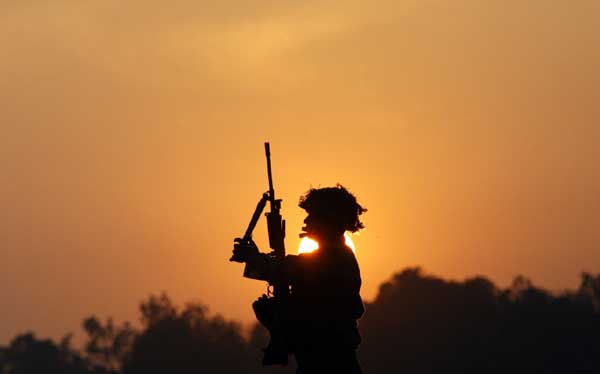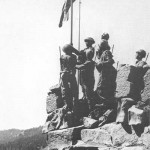What follows is not a structured military paper but a series of points to ponder over. I begin with some fundamental issues, some universal and some peculiar to Indian milieu.
Understanding military mindset
There is an age old controversy whether warfare is an art or science. As the means of warfare became more technology intensive, the military settled for and pretends it to be a science-although part of Social Science, itself an oxymoron. The fundamental tenets of this ‘science’ are Reductionist Logic and Deductive technique/methodology. In Military analysis, complex things/data is converted into less complex constituents. You will often hear Generals, Air Marshals and Admirals using phrases like, ‘Get to the meat’, cut out the flab/crap etc. Military has an abiding faith that complex problems can be completely understood in terms of their simpler parts or components.
The military then uses deductive technique to arrive at a plan. Deductive reasoning is defined as figuring out something by first reaching a conclusion on a bigger picture/issue in order to reach a conclusion on a smaller picture/issue. The analysis uses premises that are unproven in ‘real’ life situations and are mechanically construed. As a military historian I can vouch for the fact that post facto, battle accounts are altered to fit the plan made earlier or post facto planning is done to create a suitable plan to fit the outcome. The premises used in military analysis are product of this kind of exercise. The military deductive methodology suffers from ‘circularity’, a situation in which a series of causes and effects leads you back to the original cause.
The net effect of this situation is that military mind is incapable of out of the box thinking and solutions. The creed of conformism that is bedrock of military discipline, further cements this mindset. By the time an officer reaches higher rank, this becomes a part of his thinking DNA.
General Guderian’s dash to English Channel in WWII or our very own Lt. Gen. Sagat Singh’s crossing of mighty Meghna (with just few Cheeta helicopters) is admired but never taught at any military school of instruction. Bold, successful but risky operations are dismissed as aberrations and exceptions to the rule.
Conclusion
Cultivate a healthy skepticism about military plans.
India’s lack of strategic culture
Indian civilization is peculiar in some ways. In India we have treatises on philosophy, religion, science, mathematics and even sexology, but none on warfare! There is no Indian Sun Tzu or Clausewitz. For this neglect of the military dimension India paid a heavy price, it is no wonder that Indian history can also be described as a chronicle of military disasters.
Late Dr. SN Prasad, a doyen of military history in India, has searched for an answer to this perennial Indian weakness. Prasad’s analysis of what is wrong with Indian thinking on defence is of great relevance. In an introduction to a book “Historical Perspectives of Warfare in India” (Vol. X Part 3 of ‘History, Science, Philosophy & Culture” project under Prof D. P. Chattopadhayay) Dr. Prasad points out the ideological weakness of Indians. According to him, “The most potent and deep acting source of military weakness is the unique Hindu ethos itself. Rooted in the attitude of anti-predatory universalism, contemplative passivity and inherent moderation, the Indian psyche presents an anti-thesis to ‘total war’. This placed the Indian at a decisive disadvantage vis-à-vis the alien invader.”
The practical effect of this enduring Indian weakness is that the issue of national security is debated and pondered over by the ‘Kshatriya’ with rest of the intellectuals keeping a distance. India thus loses out by not harnessing its intellectual capital for national security. The influence of distorted Gandhian thought has promoted a culture of celebrating ‘victimhood’ rather than victory.
Conclusion
Military history should become a part of elective subjects in our institutions of higher learning like IITs, IIMs and Institutes of Science.
The inputs from ‘amateur’ but enthusiastic intellectuals will do much to enhance out of box solutions and deal with problem of military mediocrity and reductionism mentioned above.
Min of Education should seriously consider this proposal. Currently the departments of Defence studies that exist in our university system are in a state of confusion between NCC like teaching or current affairs analysis.
Military history, in all its aspects of strategy, geo-politics, technology, economics and sociology, offers a wholesome alternative. The fruits of this measure will be long term. Only then we can deal with the Indian civilizational flaw.
Getting ‘Real’ on Nuclear Deterrence
We love Mantra, in 1855 the King of Tanjore’s priest assured the King that his Mantra will stop the British…………rest is history or is it? Since the 1998 Pokhran II and Indian embrace of nuclear weapons as part of its national security apparatus, MINIMUM DETERRENCE AND NO FIRST USE has been the mantra of Indian nuclear posture. Earlier ‘Ambiguity’ and ‘hidden/recessed deterrence’ were in vogue. The 1998 posture was imposed upon us by the prevailing political situation. The reality of twentyfirst century is that one of our adversaries, Pakistan is a dysfunctional entity, bordering on irrational that can trigger nuclear exchange. The two person, non-zero sum game model of mutual deterrence and rationality is irrelevant and so is cold war experience.
MINIMUM DETERRENCE is an oxymoron akin to claiming min/partial pregnancy! Deterrence is either effective or ineffective and is an absolute concept with no scope for minimum/maximum or partial failure/success. Nuclear deterrence is based on ASSURED AND UNACCEPTABLE DAMAGE ON THE ADVERSARY even when striking second in retaliation.
ASSURED DAMAGE CAPABILITY is based on force that is survivable and fail safe and also the ‘will’ of the nation. While we indeed have the physical capability how do we square it off with the Gandhian ethos that we claim to follow and that rejects the Biblical ‘eye for an eye!’ concept? Both cannot coexist. Credibility is also a product of past behaviour. We failed to respond to attack on Parliament, 7/11, 26/11. In pre nuclear era Indian PM had on 23 Mar 1965 had asserted that any attack on Kashmir will be regarded as attack on India and we will retaliate in manner, time and place of our choosing. Yet on 4 Sep 1965, barely 2 days before our attack across International border, self-styled Field Marshal Ayub told Air Marshal Asghar Khan that he did not believe that India will attack across IB. A very young Pakistani soldier sentry once told me nearly 45 years ago, ‘Saab, aap ka kaisa Mulka hai? Agar hum aap jaise takatwar hote to pure Pakistan ke upar bulldozer chala dete!’
Fortunately post Uri and Pulwama terror attacks and our retaliation, we have restored our credibility. But the political opposition questioning the retaliation dents our deterrence giving hope to Pakistan that may be a change of govt. will lead to change in policy. HOW DO WE ESTABLISH THE CREDIBILITY OF OUR RETALIATORY DETERRENCE ?
The second problem area is the subjective concept of ‘unacceptable damage’. For us loss of 5 cities is unacceptable damage so it is for China. But is it so for Pakistan? Another gem from my 1 year sojourns in Pak prison. A jCO once casually but proudly remarked that in Pakistan murders take place over a seat in the bus! Will we be deterred from retaliation due to our humanitarian concerns, Gandhian ethos and fear of cross border radiation damage to our side of Punjab? Can an unstable and violent Pakistan be deterred by threat to its cities? Is it time to think of producing Enhanced Radiation Weapons to enhance our credibility? Do we need retaliatory force that is capable of completely destroying the Pakistani Punjab, political heart of Pakistani state and its army? We have expanded our deterrence to cover all nuclear, chemical and biological attacks. How will we retaliate to a ‘dirty’ bomb attack on Indian population centre by a non- state actor?
The dysfunctional state of Pakistan tends to resemble a suicide bomber. The only effective defence against a suicide attack is ‘pre-emptive’ destruction of the attacker. Can we rule out a pre-emptive response? Will that not need a counter force capability? We also have to re-double our efforts at Missile Defence so as to enhance the pre-emption option. If in place, together it will act as a ‘deterrent’ to any first strike option of our adversary.
In one can say that identification of problems, done here is the first step in finding a solution. The aim of this article was to spur debate and thinking and not provide readymade solutions.





